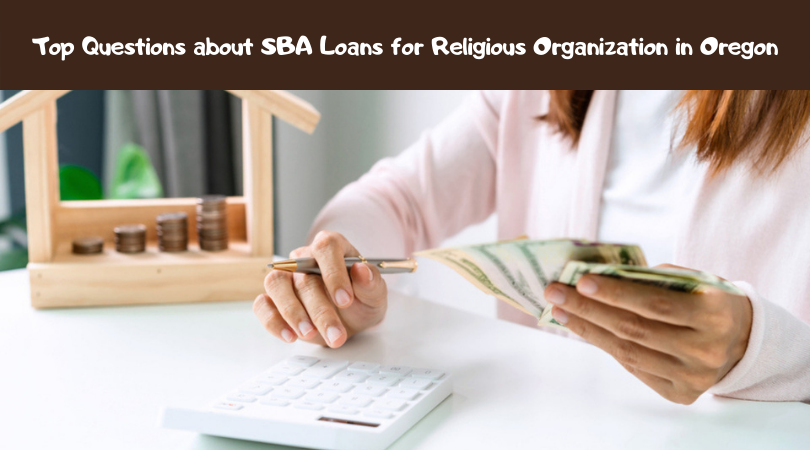Top Questions about SBA Loans for Religious Organization in Oregon

Are faith-based organizations, including houses of worship, eligible for U.S. Small Business Administration (SBA) PPP and EIDL loans?
It is clarified that faith-based organizations are eligible for SBA loans whether or not they provide social services. That is, organizations eligible to participate in these programs cannot be disqualified due to their religious nature, religious affiliation or religious expression. Certain US Small Business Administration rules — CFR 13 CFR Parts 120.110 (k) and 123.301 (g) — exclude certain religious organizations altogether.
Since these rules prohibit the participation of a class of potential recipients based solely on their religious status, the SBA refuses to comply with these subsections and proposes to amend these rules in accordance with the Constitution.
Although Title 13 CFR Part 120.110 (a) states that nonprofits are not eligible for SBA business loans in Oregon (including PPP), Payday loans Oregon, the Federal Aid, Assistance and Economic Security Act, Relief, and Economic Security Act or CARES Act entitles nonprofits to participate in the PPP program whether or not such nonprofits provide secular social services.
When submitting a loan request, will the organization have to sacrifice their autonomy, the rights given by the First Amendment to US Constitution, or other legal rights?
They are not. Issuing credit through any SBA program:
- does not limit the authority of faith-based organizations to determine the standards, roles, and responsibilities of their members;
- does not restrict the freedom of religious organizations to choose people for performance of work related to the conduct of religious rituals of this organization;
- is not a waiver of any rights set forth in federal laws, including rights protecting religious autonomy and organization, under the Religious Freedom Restoration Act 1993 (RFRA), Title 42 USC, Sections 2000b et seq., section 702 of the Civil Rights Act 1964, section 42 USC, part 2000e-1 (a) and the First Amendment to the United States Constitution.
Simply put, a religious organization that receives a loan retains its independence, autonomy, the right to express its opinion, religious expression and the right to govern, while no religious organization will be deprived of the opportunity to receive funding on the basis that the circle of leadership, members or employees of this organization are limited to persons who share her religious beliefs and participate in religious practices.
Does a religious organization have to apply to take advantage of this exemption, or submit any documents of its religious beliefs or practices that support the validity of its application?
To take advantage of this exemption, you do not need to submit a detailed application or go through a special procedure. If you believe your organization is eligible for an exception to the rules on affiliation, you must submit an application with your loan application.
What legal requirements will apply to a religious organization after receiving federal financial assistance? Will they expire after the full loan repayment?
Issuing a loan from any SBA program is federal financial assistance and is subject to certain non-discriminatory obligations. Any legal obligations that the organization makes upon issuing of this loan are not permanent, so such obligations will expire upon payment or forgiveness of the loan.
The SBA explains that the proposed rules apply to the goods, services and conditions offered to people by the recipients of these loans, but not to the missionary activities of the religious organization within its community. For example, SBA rules would require a religious organization that operates a restaurant or thrift store that anyone can visit to serve people.
Category: General

